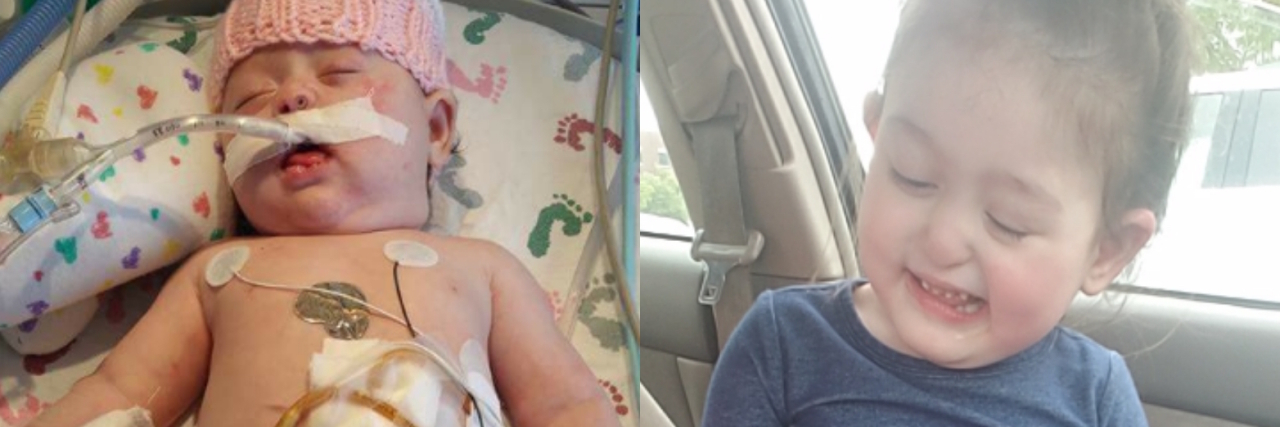Dear Parents: Remember This When Dealing With Your Kid's Doctors
My daughter was born April 24, 2015. I was able to hold her for a total of five minutes before the nurses scooped her out of my arms and took her to the small NICU they had. My husband and I had no idea what was going on. I was scared, worried, and downright exhausted.
Fast forward two hours later, when we were taken to Johns Hopkins Children’s Hospital in Baltimore, Maryland. We were standing in her NICU room in silence scuffling back and forth to give the nurses room to do what they needed to do as they hooked her up to numerous machines. My heart was breaking with tears streaming down my face as my child was crying and all I wanted to do was hold and comfort her.
The nurses finished putting in the IVs and monitors and left us to “relax” a little bit. We settled down in her room. That’s when my husband and I made a promise to each other: no matter what they say, we as her parents will make the final decision.
So my husband and I got down to business. We looked up all the symptoms and read hours and hours of medical papers and articles. In one month we self-diagnosed her with solitary median maxillary central incisor syndrome (SMMCI). SMMCI is a rare condition where the face is centralized and instead of having two front teeth she has a special “unicorn” front tooth. The one out of 200,000 recorded births we read about were all very different. Some had severe mental disabilities and some had none at all; the only defining link to this syndrome was the one front tooth and tiny nose. We figured this out a month before the genetics department told us.
During our next appointment, they sat us down in a room told us to prepare ourselves for the news. We blurted out that we already knew. We told them what they thought it was and they said we were correct. Then they proceeded to tell us the she will without a doubt have failure to thrive. We were outraged because we knew better than that.
In the span of three months, my daughter had three different surgeries because she could not breathe through her nose since it was so tiny. On the fourth and final month they suggested they give her a tracheotomy and put her in a home. My husband and I would have none of that. They sent in doctor after doctor to tell us the same thing, that she would not have any kind of “normal” life.
At that point, we kicked in our promise in full gear. We demanded to speak to the head ENT in the country and after few days we finally did. He sent a resident who was working under him and he told us the same ridiculous thing all of the other doctors had been pushing on us. They would tell us that they’re doctors; they went to school for this kind of stuff and they knew what was right for the patient. By this point, we were extremely fed up to the point I was screaming at the top of my lungs to speak to the actual doctor. I let them know I was not going to leave the room until I do.
He finally came, and we told him what kind of surgery we wanted done on our daughter. He said the procedure was unheard of for an infant. We told him that while we understood, this is what she needs to have done so she can live at home with her family, away from this hospital. After a few more days, the head ENT came back and he agreed to do the surgery. The surgery was successful, and after four months of living in the NICU– that’s 124 days –our daughter was finally able to come home with us.
My advice is this: yes, they are doctors, and yes, they go to school for this kind of stuff for years — but they know your child as nothing more than a patient. You are the parent. Never forget this. Do not be afraid to speak up and do what you think is right. If we would have just done what the doctors told us to, our daughter would be in a home away from us being taken care of by strangers. Instead she’s here in our home thriving day by day. She can’t speak and she can’t walk just yet, but she can sit up and she can crawl and she can babble and laugh and cry and eat. I believe children are strong and resilient little angels. At a young age, they cannot speak for themselves, so it is your job to do it for them. Don’t give up. Don’t underestimate your child. Give them a chance that they so rightfully deserve.

